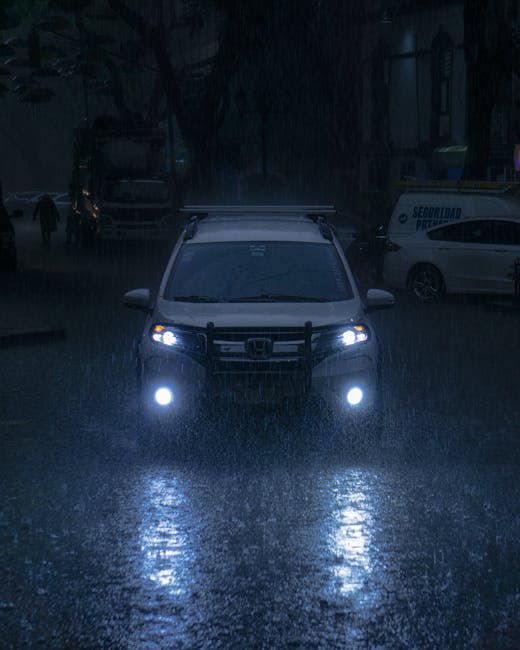Safety Tips for Travelers in Thailand: Stay Aware, Stay Safe, and Enjoy Your Trip!

Safety Tips for Travelers in Thailand: Stay Aware, Stay Safe, and Enjoy Your Trip!
Alright, friend, so you're planning a trip to Thailand? Amazing choice! Thailand is a truly magical place, bursting with vibrant culture, stunning landscapes, delicious food, and incredibly friendly people. I've been lucky enough to spend quite a bit of time exploring the Land of Smiles, and I've learned a thing or two about staying safe while soaking it all in. This isn't meant to scare you – far from it! It's all about being prepared and aware so you can have an unforgettable adventure with peace of mind. Let's dive in, shall we?
Before You Even Pack Your Bags: Preparation is Key

Before you even smell the fragrant street food or dip your toes in the turquoise waters, some pre-trip prep can make a world of difference. Think of it like building a solid foundation for your incredible Thai experience.
1. Do Your Research: I cannot stress this enough! Knowing a little bit about Thai customs, laws, and even the general political climate can really help you avoid unintentionally offending someone or stumbling into an uncomfortable situation. Read blogs, watch travel vlogs, and consult guidebooks. The more you know, the better.
2. Register with Your Embassy: This is a simple step that could be invaluable in case of an emergency. Most countries have online portals where you can register your travel plans. This allows your embassy to contact you if there's a crisis or if you need assistance.
3. Photocopy Important Documents: Keep digital copies of your passport, visa, driver's license, and any other important documents stored securely online (like in Google Drive or Dropbox). I also like to have physical photocopies separate from the originals in case my wallet gets lost or stolen.
4. Travel Insurance is Non-Negotiable: Trust me on this one. Medical emergencies, lost luggage, flight cancellations – these things happen. A good travel insurance policy can save you a fortune and a whole lot of stress. Make sure it covers medical expenses, repatriation, personal liability, and loss or theft of belongings. Read the fine print, though! Understand what's covered and what isn't.
5. Alert Your Bank and Credit Card Companies: Let them know you'll be traveling in Thailand and for how long. This will prevent them from flagging your transactions as suspicious and potentially freezing your cards. It's also a good idea to inquire about international transaction fees.
Navigating the Streets: Transportation Safety

Getting around in Thailand can be an adventure in itself! From bustling Bangkok streets to winding mountain roads, it's important to be smart about your transportation choices.
1. Tuk-Tuks: Negotiate, Negotiate, Negotiate! Tuk-tuks are iconic, but they can also be a tourist trap. Always agree on a price before you get in. And don't be afraid to haggle! A good starting point is to offer about half of what they initially quote. Be wary of drivers who offer suspiciously low prices, as they may be planning to take you to shops where they earn commission.
2. Taxis: Use the Meter (or Agree on a Price): In cities like Bangkok, insist that the taxi driver uses the meter. If they refuse, find another taxi. If you're taking a taxi in a place where meters aren't common (like some smaller towns), agree on a price beforehand.
3. Motorbikes: Proceed with Caution (and Wear a Helmet!): Renting a motorbike can be a great way to explore, but it also comes with risks. Thai roads can be chaotic, and traffic laws aren't always strictly enforced. Always wear a helmet, even if you see locals riding without one. Make sure you have a valid motorcycle license (an international driving permit is usually required) and adequate insurance. Honestly, if you're not an experienced motorbike rider, it's probably best to avoid renting one altogether. The risk simply isn't worth it.
4. Buses and Trains: Generally Safe, But Be Aware of Your Belongings: Public buses and trains are a budget-friendly way to travel long distances. They're generally safe, but keep an eye on your belongings, especially in crowded areas. Secure your valuables and be mindful of your surroundings.
5. Ferries and Boats: Check Safety Standards: If you're island hopping, make sure the ferries and boats you're using appear well-maintained and have adequate safety equipment (life jackets, etc.). Don't overload yourself with luggage, and avoid boats that seem overcrowded or unsafe.
Protecting Your Health: Food, Water, and More

Thai food is a culinary delight, but it's also important to be mindful of food safety. And beyond food, there are other health considerations to keep in mind.
1. Drink Bottled Water: Tap water in Thailand isn't generally safe to drink. Stick to bottled water and make sure the seal is intact. Be careful with ice as well – it should ideally be made from purified water.
2. Eat at Reputable Establishments: While street food is amazing, choose stalls and restaurants that look clean and busy. Busy often means fresh! Observe how the food is prepared and stored. If something looks questionable, err on the side of caution and skip it.
3. Be Careful with Seafood: Seafood poisoning is a common issue in Thailand. Ensure that the seafood is cooked thoroughly and comes from a reputable source. Avoid raw seafood, especially if you have a sensitive stomach.
4. Watch Out for Mosquitoes: Dengue fever, Zika virus, and malaria are all mosquito-borne diseases that are present in Thailand. Use mosquito repellent containing DEET, wear long sleeves and pants (especially in the evenings), and sleep under a mosquito net if possible.
5. Sun Protection is Essential: The Thai sun is strong! Wear sunscreen with a high SPF, even on cloudy days. Reapply frequently, especially after swimming. A hat and sunglasses are also essential for protecting yourself from the sun's harmful rays.
6. Vaccinations: Consult your doctor about recommended vaccinations for Thailand. Hepatitis A and typhoid are often recommended, and depending on your travel plans, you may need other vaccines as well.
Avoiding Scams and Petty Theft: Street Smarts 101

Unfortunately, like any popular tourist destination, Thailand has its share of scams and petty theft. Being aware of common scams and taking basic precautions can help you avoid becoming a victim.
1. The "Closed Temple" Scam: This is a classic. A friendly stranger approaches you and tells you that the temple you're planning to visit is closed for a special ceremony or renovation. They then offer to take you to another (usually overpriced) temple or shop. Politely decline and check the opening hours of the temple yourself.
2. The Gem Scam: Someone strikes up a conversation and tells you about a great deal on gems or jewelry. They may even take you to a shop where you can "buy" the gems and then sell them for a profit back home. This is almost always a scam. The gems are usually worthless, and you'll be out of pocket.
3. The Scooter Damage Scam: This is why taking photos of the scooter before you rent it is crucial. Some unscrupulous rental companies will try to charge you for pre-existing damage. Document everything before you drive away.
4. The Overpriced Taxi or Tuk-Tuk: We already touched on this, but it's worth repeating. Always negotiate the price beforehand or insist on using the meter.
5. Pickpockets: Be aware of your surroundings in crowded areas, like markets and public transportation. Keep your valuables close to you, preferably in a money belt or a secure bag. Avoid flashing large amounts of cash.
6. Be Wary of "Helpful" Strangers: While most Thais are genuinely friendly and helpful, be cautious of strangers who approach you offering unsolicited assistance, especially if they seem overly eager. Trust your instincts.
Respecting Thai Culture: Mind Your Manners

Thailand has a rich and unique culture, and it's important to be respectful of local customs and traditions. A little cultural sensitivity goes a long way.
1. Dress Modestly When Visiting Temples: Cover your shoulders and knees. Some temples provide sarongs for visitors who aren't dressed appropriately, but it's always better to be prepared.
2. Remove Your Shoes: Always remove your shoes before entering temples, homes, and some shops. Look for a designated shoe rack or area.
3. Avoid Public Displays of Affection: While holding hands is generally acceptable, avoid excessive displays of affection in public.
4. Don't Point Your Feet: The feet are considered the lowest part of the body and are considered impolite to point at someone or something, especially a Buddha image or a monk.
5. Be Respectful of Monks: Monks are highly revered in Thai society. Women should never touch a monk. If you need to give something to a monk, place it on a cloth or offer it to a male intermediary.
6. Wai: The "wai" is a slight bow with the palms pressed together, used as a greeting, a thank you, or a sign of respect. It's a nice gesture to learn and use when interacting with locals. The higher the hands, the more respect you show.
7. Remain Calm: In general, try to remain calm. Do not shout or become angry in public.
Staying Connected and Informed: Communication is Key

In today's world, staying connected is easier than ever. Having access to information and being able to communicate can be crucial in an emergency.
1. Buy a Local SIM Card: This is usually the most cost-effective way to stay connected. You can buy a SIM card at the airport or in most convenience stores. Data plans are generally very affordable.
2. Download Useful Apps:
- Google Translate: For translating languages and menus.
- Grab (Southeast Asia's Uber): For booking taxis and rides.
- Maps.me (Offline Maps): Download maps of the areas you'll be visiting for offline navigation.
- Currency Converter: To keep track of exchange rates.
3. Know Emergency Numbers:
- Police: 191
- Tourist Police: 1155
- Medical Emergency: 1669
Specific Safety Considerations for Women Travelers

While Thailand is generally a safe country for women travelers, it's important to be aware of potential risks and take extra precautions.
1. Trust Your Gut: If a situation feels uncomfortable or unsafe, remove yourself from it immediately. Don't worry about being polite.
2. Be Mindful of Your Alcohol Consumption: It's tempting to relax and enjoy the nightlife, but be aware of how much you're drinking. Getting overly intoxicated can make you more vulnerable.
3. Avoid Walking Alone at Night in Unlit Areas: Stick to well-lit and populated streets, especially at night. If you need to travel alone, consider taking a taxi or ride-sharing service.
4. Dress Appropriately: While Thailand is generally tolerant, dressing modestly can help you avoid unwanted attention, especially in more conservative areas.
Final Thoughts: Embrace the Adventure, But Stay Smart

Thailand is an incredible destination that offers something for everyone. By being prepared, aware of your surroundings, and respectful of local culture, you can minimize risks and maximize your enjoyment. Don't let safety concerns overshadow your experience. Embrace the adventure, be open to new experiences, and create memories that will last a lifetime. Safe travels, my friend! And remember, the most important thing you can bring with you is a healthy dose of common sense.
Post a Comment